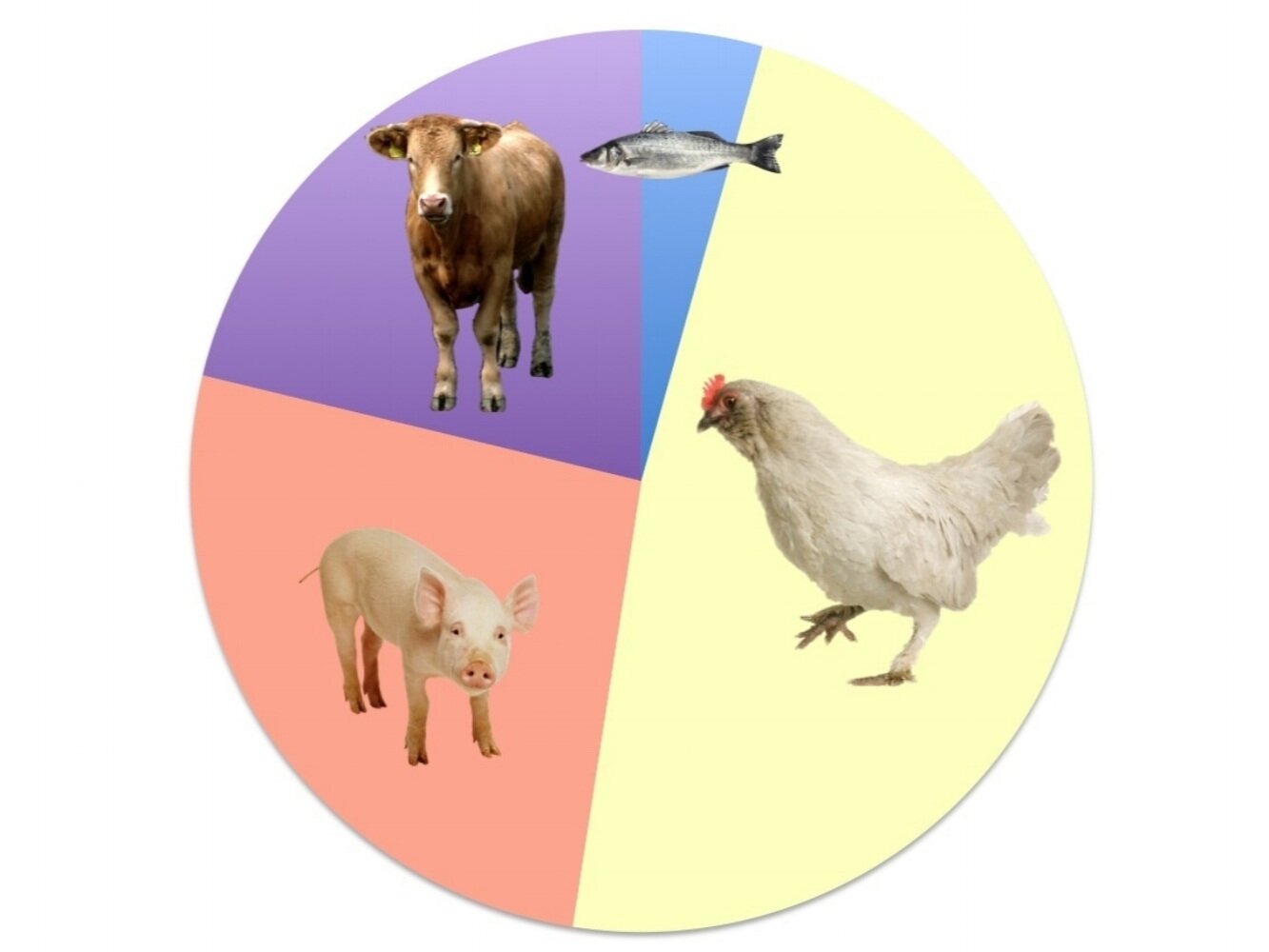Sustainable Feed Ingredients
The greatest challenge facing the animal feed industry is the need for large volumes of high-protein ingredients. Feed producers are turning to plant-based protein to meet the demand. Plant-based protein is sustainable, cheaper, and less prone to contaminants than fishmeal and animal/bone meal, and production is scalable.
Soybean meal is the principal source of protein for the feed industry worldwide. Soybeans have high protein content and are a cost-effective source of many amino acids. But conventional soybeans are deficient in some essential amino acids, notably methionine. To meet dietary requirements, methionine is added to nearly all soy-based feed, which increases production costs. Chemically synthesized methionine (or its analog) is the most common form of the supplemental amino acid in animal feed.
Solution for sustainable nutrients in plant-based feed
Our Enhanced Nutrition (EN) technology increases the amino acid content of plant seeds. Soybeans with the EN technology have increased levels of methionine as well as other essential amino acids.

